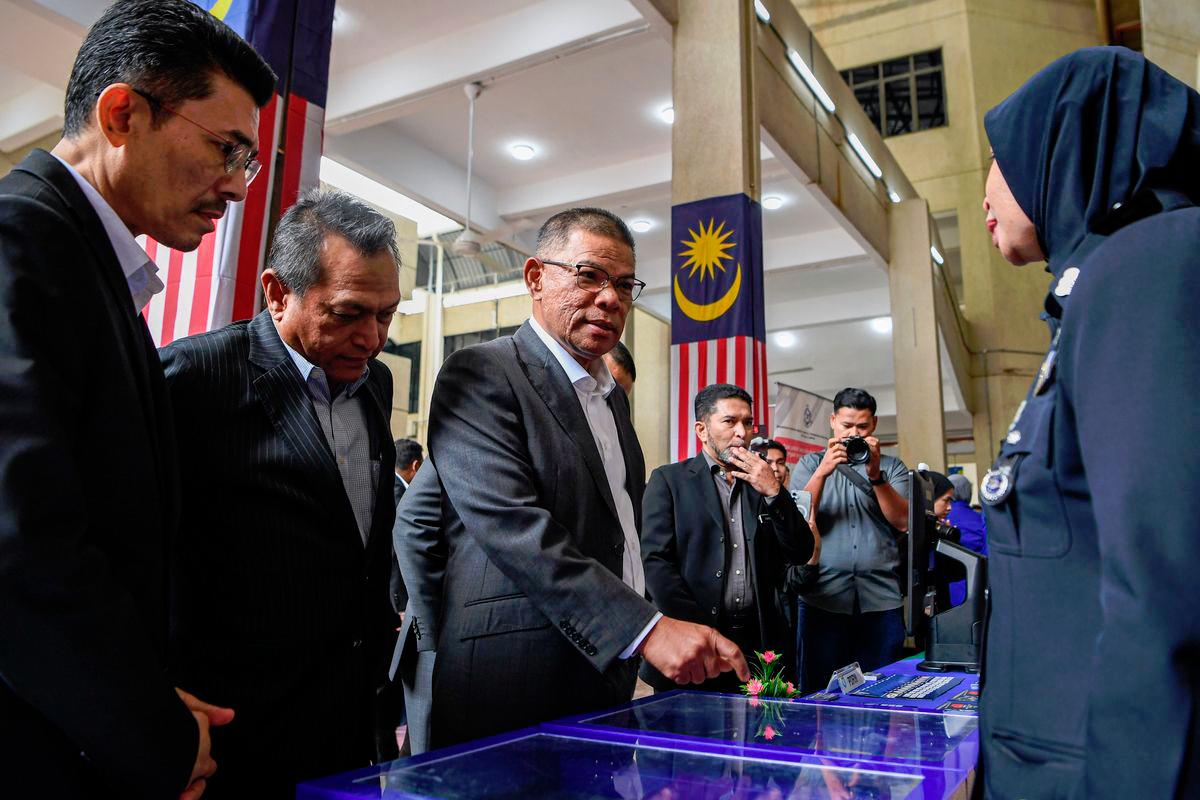KUALA LUMPUR: The Home Ministry will roll out a nationwide refugee registration programme and set up a new agency to centralise border enforcement, as part of efforts to tighten migration control and improve cross-border management.
Home Minister Datuk Seri Saifuddin Nasution Ismail said the Refugee Registration Database Programme (DPP) will be coordinated by the National Security Council (NSC) and implemented through the Immigration Department.
The initiative marks Malaysia’s first attempt at building its own refugee database.
He said the aim is to enhance data credibility and streamline administration, noting that current processes are dependent on the United Nations High Commissioner for Refugees (UNHCR), which often results in slow data sharing.
“To speed up our response to refugee-related issues, the NSC has directed the Home Ministry to carry out data collection and registration using our own infrastructure,” he said at the INTAN Minister’s Conversation 2025 yesterday.
As of June this year, UNHCR has verified around 94,000 individuals in Malaysia, although more than 180,000 cards have been issued, most of them held by Rohingya refugees.
To date, the Home Ministry has piloted biometric registration in immigration depots and has enrolled nearly 37,000 individuals under the new system.
He stressed that the method involves secure biometric capture, not manual forms, to ensure data reliability.
More than 70 Immigration offices across the country will be involved in the nationwide rollout once procurement is finalised.
Meanwhile, Saifuddin said the ministry’s use of artificial intelligence (AI) has identified drug abuse as the main cause of crime in Malaysia, with 80% of prison admissions linked to drug offences.
He said three key offences under the Dangerous Drugs Act emerged as the most common: drug use under Section 15(1), drug possession under Section 12(2) and habitual offenders under Section 39C.
Saifuddin said AI was used to analyse over 1.2 million crime reports, revealing that the offences are the most common charges under the Act.
“It was revealed that those charged with drug use were statistically likely to commit up to 31 other offences. That tells us clearly – if we want to address the root of the crime, we must go straight to drug-related offences.
“We cannot treat drug abuse solely as a criminal issue. It’s a public health problem with wider consequences,” he added.
AI is also being used across agencies to improve enforcement, with officers from the police, Immigration Department and National Anti-Drugs Agency now undergoing training at UKM, UiTM and MIMOS Berhad.
“We’re not inventing new AI, but we’re applying existing tools to solve real problems from border congestion to repeat offenders.”
As part of the refugee data initiative, Saifuddin said the Agensi Kawalan Pintu Sempadan (AKPS) was launched to streamline overlapping roles previously handled by immigration, the Customs Department and police.
“Some checkpoints have up to 20 agencies operating with little coordination. AKPS will centralise enforcement for smoother control and better service delivery.”
AKPS has begun operations at selected land, sea and air checkpoints, with phased expansion underway.
Saifuddin said not all of Malaysia’s 120-plus official checkpoints will be included immediately in the exercise, but key border points are a priority.









